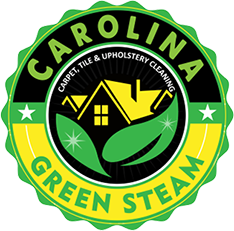Cleaning your home often feels like a routine chore—a never-ending cycle of dusting, mopping, and tidying. But what if there’s more to it than meets the eye? A truly clean home doesn’t just look good; it’s a space that fosters health, well-being, and peace of mind. Understanding the science behind cleaning can help you elevate your efforts and reap the full benefits of a sparkling clean home. Here’s what you might be missing.
1. The Role of Microbiology: Why Clean Matters
Your home is teeming with microorganisms—bacteria, viruses, and fungi. While not all microbes are harmful, some can pose health risks if left unchecked. Surfaces like kitchen counters, doorknobs, and bathroom sinks are hotspots for germs.
The Science: Regular cleaning and disinfecting disrupt the life cycles of these pathogens, preventing them from multiplying and spreading. Using the right cleaning agents ensures harmful bacteria like E. coli and Salmonella don’t linger in your home.
Tip: Focus on high-touch surfaces and use products that are EPA-approved for killing germs.
2. Dust and Allergens: The Invisible Offenders
You may not see dust particles floating in the air, but they’re there, carrying allergens like pollen, pet dander, and dust mites. These tiny irritants can trigger allergies, asthma, and other respiratory issues.
The Science: Vacuuming with HEPA filters and using microfiber cloths trap dust effectively, removing allergens rather than redistributing them into the air. Regular cleaning reduces the overall allergen load in your home, making it healthier for everyone.
Tip: Wash bedding weekly in hot water to eliminate dust mites, and don’t forget to clean under furniture where dust accumulates.
3. Psychological Benefits of Clean Spaces
The cleanliness of your home has a direct impact on your mental health. Clutter and dirt can create feelings of stress, anxiety, and even guilt, while clean, organized spaces promote calm and focus.
The Science: Studies in environmental psychology show that clean spaces reduce mental fatigue and improve cognitive function. Visual chaos overstimulates the brain, while tidy environments allow you to concentrate on tasks without distraction.
Tip: Implement a decluttering routine to keep your space organized and your mind at ease.
4. The Chemistry of Cleaning Products
Not all cleaning products are created equal. Understanding the ingredients and how they work can help you choose the most effective solutions for your home.
The Science: Detergents break down grease and dirt, while disinfectants kill microbes on surfaces. Natural options like vinegar and baking soda work well for light cleaning but may not be sufficient for heavy-duty jobs or disinfection.
Tip: Rotate between different types of cleaning agents to tackle various types of grime and ensure comprehensive cleanliness.
5. Mold and Mildew: Silent Health Hazards
Mold thrives in damp, humid environments like bathrooms and basements. It not only damages surfaces but also releases spores that can cause health issues such as allergies and respiratory problems.
The Science: Mold needs moisture to grow, and cleaning combined with dehumidifying interrupts its growth cycle. Products containing bleach or hydrogen peroxide are particularly effective at killing mold spores.
Tip: Dry damp areas immediately and improve ventilation in bathrooms and kitchens to prevent mold growth.
6. Odor Control: The Hidden Enemy
Unpleasant odors are often caused by bacteria, mildew, or decomposing organic matter that’s hidden from plain sight.
The Science: Odor-neutralizing products contain enzymes that break down odor-causing compounds at a molecular level. Regular cleaning ensures these compounds don’t have a chance to build up.
Tip: Empty garbage bins frequently, clean drains, and use natural deodorizers like activated charcoal to keep your home smelling fresh.
7. The Energy Boost of a Clean Environment
Did you know that a clean home can actually make you more productive? When your surroundings are clean and organized, it’s easier to focus on tasks and maintain higher energy levels throughout the day.
The Science: The brain interprets clutter as incomplete work, leading to feelings of fatigue. A clean home removes these distractions, allowing you to direct your energy where it’s needed most.
Tip: Dedicate 15 minutes each day to tidying up to maintain a consistently clean and energizing space.
What You’re Missing: The Professional Edge
Even with the best intentions, many people miss the hidden nooks and crannies where dirt, bacteria, and allergens lurk. That’s where professional cleaning services come in.
The Science: Professionals use advanced tools and techniques to remove deep-seated grime, ensuring a level of cleanliness that’s hard to achieve on your own. From steam cleaning to specialized disinfection, the results speak for themselves.
Tip: Schedule a professional deep clean at least twice a year to reset your home and maintain a sparkling standard.
Cleaning isn’t just a chore—it’s a science. By understanding the why and how behind a clean home, you can make smarter choices that protect your health, elevate your mental well-being, and keep your home looking its best.
Ready to transform your space into a haven of cleanliness?

